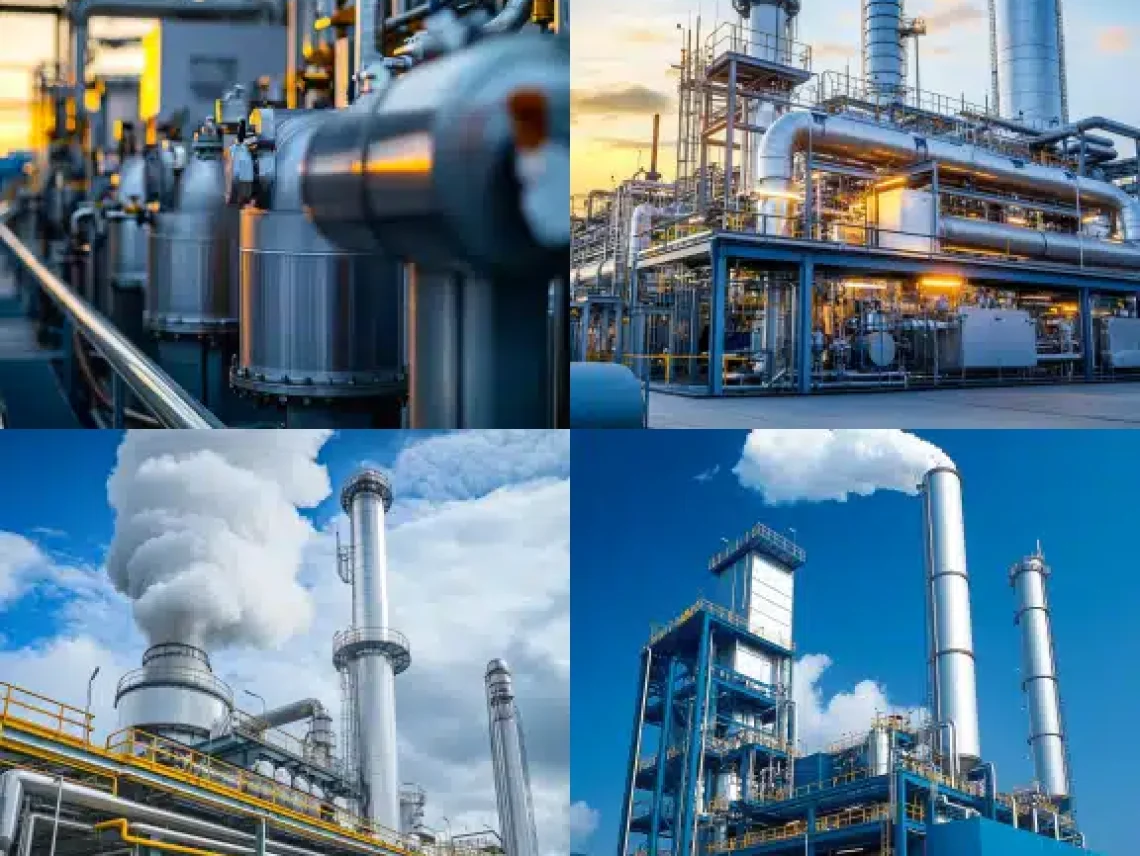Understanding Fuel Scrubbers: Function and Importance

Table of Contents
ToggleFuel Scrubbers: Function and Importance
In the realm of environmental sustainability and enterprise performance, gas scrubbers play a vital role in mitigating pollutants and optimizing the performance of combustion procedures. Consequently, understanding what a gasoline scrubber does and its significance can provide valuable insights into its utility across diverse sectors.
Function of Fuel Scrubbers
A fuel scrubber, also referred to as a gas gasoline scrubber or gasoline remedy machine, is specifically designed to remove contaminants and pollutants from gasoline gases before they are combusted or utilized in commercial procedures. For example, these contaminants can include sulfur compounds (such as hydrogen sulfide), trace metals, particulates, and other impurities that might otherwise contribute to air pollution and operational inefficiencies. Moreover, by addressing these pollutants, fuel scrubbers enhance both environmental protection and operational effectiveness.
Mechanisms of Action
Fuel scrubbers appoint diverse mechanisms to cleanse gasoline gases:
Absorption: This technique entails passing the gasoline gas through a liquid solvent, commonly an alkaline solution like amine. The solvent reacts with and absorbs acidic compounds, such as hydrogen sulfide. As a result, the absorbed contaminants are separated from the scrubbing solution, ensuring smooth gas fuel for combustion processes.
Adsorption: Some scrubbers use adsorbents like activated carbon or zeolites to capture trace metals and exceptional impurities from fuel gases. Notably, these materials have a large surface area and selectively adsorb specific contaminants, thus enhancing the overall quality of the gasoline.
Chemical Reaction: Fuel scrubbers can facilitate chemical reactions that convert dangerous compounds into less hazardous or inert substances. For instance, hydrogen sulfide can be oxidized into elemental sulfur or sulfate compounds, which are significantly less risky to the environment.
Applications and Industries
Fuel scrubbers find applications in various industries where clean fuel gas is essential for green operations and regulatory compliance. For instance:
Natural Gas Processing Plants: Scrubbers are used to remove sulfur compounds and other unique impurities from natural gas before it is distributed for residential, commercial, or industrial purposes.
Refineries and Petrochemical Plants: These facilities rely on gas scrubbers to handle refinery gases and specific gasoline streams. This ensures compliance with stringent environmental policies while improving process efficiency.
Power Generation: In energy facilities, fuel scrubbers are critical for cleansing fuel gases (such as biogas, landfill gas, or syngas). As a result, they reduce emissions of sulfur dioxide and other pollutants during combustion.
Steel and Metal Processing: Fuel scrubbers assist in removing fuel gases generated during metal smelting and processing. Consequently, they help meet emission standards while minimizing environmental impact.
Benefits of Fuel Scrubbers
The integration of gasoline scrubbers offers numerous blessings to industries and the environment:
- Environmental Compliance: By doing away with pollution from gas gases, scrubbers help industries meet regulatory emissions necessities and reduce their environmental footprint.
- Improved Air Quality: Scrubbers contribute to cleaner air by lowering emissions of sulfur dioxide, particulates, and exceptionally risky pollutants that contribute to respiratory issues and environmental degradation.
- Operational Efficiency: Cleaner gasoline gases result in stepped-forward combustion efficiency and reduced protection fees related to equipment fouling and corrosion because of contaminants.
Need a reliable partner?
FAQ’s
Are fuel scrubbers high-priced to put in and maintain?
Initial expenses can vary depending on the size and complexity of the scrubbing system. However, operational economic financial savings from advanced performance and reduced emissions often offset those costs over the years.
Can fuel scrubbers control unique styles of gas gases?
Yes, fuel scrubbers can be designed to cope with a good sized variety of fuel gases, consisting of natural gas, biogas, landfill gas, syngas, and others, via way of adjusting the scrubbing medium and operational parameters.
How often do gasoline scrubbers require protection?
Maintenance durations depend upon factors which include the sort of contaminants, scrubber format, and operating situations. Regular tracking and servicing make certain advanced basic overall performance and durability of scrubbing systems.
Do gas scrubbers have an impact on the strength efficiency of combustion techniques?
Yes, by way of cleansing gas gases, scrubbers contribute to advanced energy performance in combustion processes, leading to decreased fuel consumption and decreased greenhouse fuel emissions.
Are there options for gas scrubbers for cleaning gasoline gases?
Alternatives consist of catalytic converters and filtration systems, which could supplement or replace scrubbers relying on particular emission management necessities and commercial programs.
Solutions
In the realm of industrial solutions, Red River emerges as a pioneer, offering a diverse range of custom-engineered products and facilities. Among our specialties is the design and production of Custom/OEM Pressure Vessels, meticulously crafted to meet individual client requirements, ensuring performance under various pressure conditions. Our expertise extends to the domain of prefabrication, where Red River leads with distinction.
The company excels in creating prefabricated facilities, modules, and packages, reinforcing its stance as a forerunner in innovation and quality. This proficiency is further mirrored in their Modular Skids offering, where they provide an array of Modular Fabricated Skid Packages and Packaged equipment. Each piece is tailored to client specifications, underlining their commitment to delivering precision and excellence in every project they undertake.
